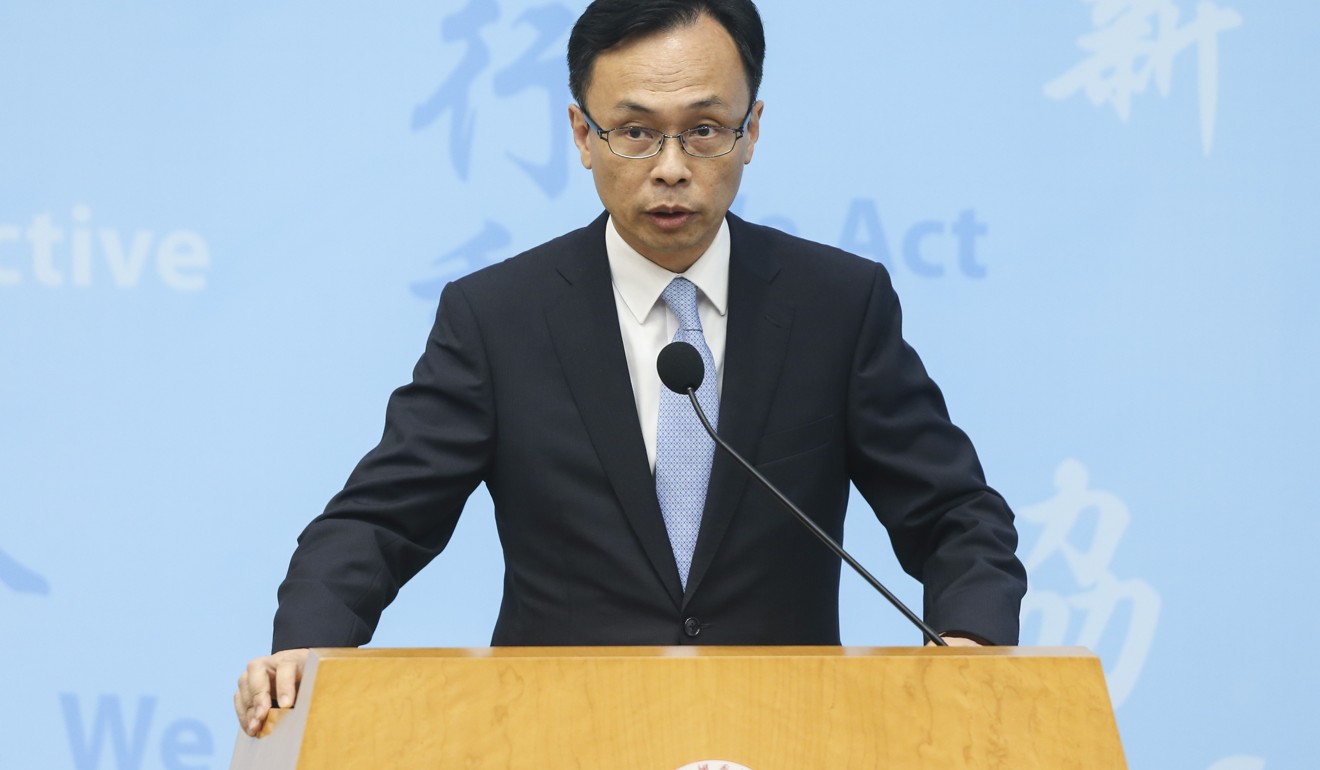
‘Undesirable’ for Hong Kong court to define anthem insults: Law Society on Legco bill
Group warns that judiciary should not be responsible for interpreting issues of constitutional importance in a politically charged social environment
Leaving the court to define what constitutes an insult to China’s national anthem in Hong Kong is “undesirable” and “could potentially expose the judiciary to unfair criticism”, the city’s solicitors body has said.
In a submission to the Legislative Council last week, the Law Society said the government had failed to clearly define phrases in its controversial proposal for the national anthem law, including what qualified as “derogatory” or “insulting” acts that the bill sought to ban, or what would be considered “harmful to the dignity” of March of the Volunteers.
On Saturday, speakers at a separate forum led by pro-democracy group Demosisto also called for caution over the anthem law, taking issue with how legislation would affect schools and education.
In its Legco submission, the Law Society had warned that mirroring the mainland’s version of legislation on the anthem was a pitfall as the city’s courts would need to “develop the law” from a different legal system.
Intention key to determining whether national anthem insult in Hong Kong deserves jail time
“This is undesirable, because it would result in the judiciary being responsible for interpreting issues of constitutional importance in a politically charged social environment,” the society warned in a two-page submission.
“The proposed legislation without clear definitions could potentially expose the judiciary to unfair criticism. That would not be beneficial to the rule of law in Hong Kong,” it further stated.
The proposed legislation without clear definitions could potentially expose the judiciary to unfair criticism
Robert Pang Yiu-hung, vice-chairman of the Bar Association – the city’s professional body for barristers – echoed the views about lack of clarity in the anthem proposal, but added that the group would not comment until the bill is formally introduced in Legco.
Last November, China’s top legislative body inserted the anthem law into the Basic Law, Hong Kong’s mini-constitution, requiring the local government to adopt it. Hong Kong authorities aim to table the bill at Legco in July to make insulting or distorting the anthem punishable by a maximum fine of HK$50,000 (US$6,400) and three years in prison.
If the bill is passed, the Hong Kong court, under its common law principle, is duty-bound to punish such acts, despite the legislation having originated from the mainland system.

At a public hearing last Saturday, Hong Kong Secretary for Constitutional and Mainland Affairs Patrick Nip Tak-kuen declined to go into details about criminal acts involving the anthem. He said as local courts hear more cases, the specifics of offences would be clearer over time.
Liberal HKU academic throws hat in ring for Hong Kong Law Society council seat
The Law Society, however, said: “[The principle] of legal certainty is fundamental to not only the regulation of daily activities of Hong Kong residents, but also the protection of their rights and freedoms guaranteed by the laws of Hong Kong, including the Basic Law.”
Separately, the government said earlier that the preamble of the bill would include words on “promotion of patriotic spirit”, but the exact text was not revealed.
In the mainland version of the anthem law, Article 1 states that the legislation is meant “to enhance the sense of nation among citizens; to promote patriotism; and to cultivate and practise the core values of socialism”. The Hong Kong government said it would “suitably incorporate this article into the preamble” of its bill for local legislation.
The society warned that if such wording were included in the preamble, it would be “inconsistent with Basic Law Article 5”. This provision states that the “socialist system and policies shall not be practised” in Hong Kong.
Meanwhile, at the Demosisto forum on Saturday, several speakers spoke up against the government’s plan under the anthem legislation to require pupils in primary and secondary schools to learn and understand the national song.
Dr Leung Yan-wing, an adjunct associate professor specialising in education policy at Education University, said it was crucial to train students to think critically on the subject as part of civic education.
“The history of the national anthem – including the controversies surrounding it – should all be taught as well and it would be very undesirable to teach only the government’s version,” he said. “In that case, it would not be education but inculcation.”
Lawyer Chong Yiu-kwong, vice-president of the Hong Kong Professional Teachers’ Union, also cast doubt on the need to cover schools in the legislation, warning the bill might be counterproductive in seeking to cultivate patriotism among students. A simpler version of the bill would be more suitable for Hong Kong, he said.
Additional reporting by Jeffie Lam

